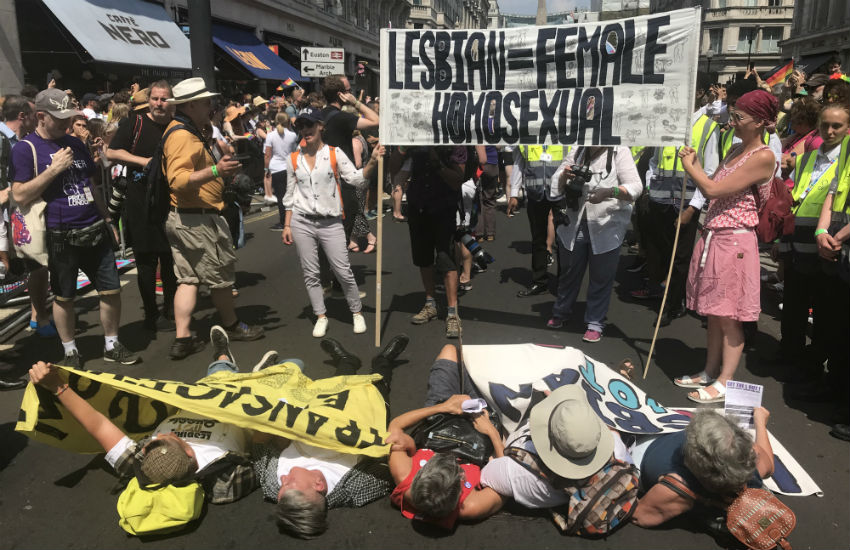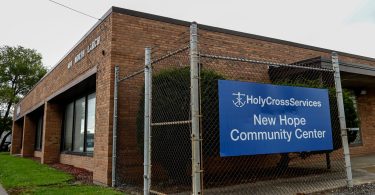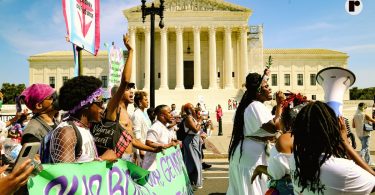TERF activists storm and block the Pride in London parade route. | Photo: Jamie Tabberer
This year, I hesitantly chose to not attend Pride in London and instead stayed in Manchester for Sparkle, the weekend-long celebration of gender identity.
It was in that space, surrounded by the trans community, that I saw the news break that an anti-trans group had taken over the front of the parade. The group had distributed explicitly transphobic materials as the event organizers did virtually nothing to stop them.
Pride is hard for a lot of queer people. Many of us are too disabled, too political, too gender non-conforming to feel welcome to march in the parades.
Consequently, the way in which such an explicitly transphobic hate group were allowed to occupy a space considered toxic by many in our community holds great political significance.
‘Transphobia and transmisogyny has no place in our community’
In an era where it feels like there’s a new headline dragging trans women through the press every week and the rates of hate crime against LGB and particularly trans people are staggering, it is vital that every LGBTI space and event is explicit in their message: transphobia and transmisogyny has no place in our community.
As the Gender Recognition Act consultation looms, the urgency of the situation cannot be understated.
The protestors at Pride in London and the materials they distributed represent a tiny portion of the relentless campaign against trans people’s rights.
Groups like Pride in London must acknowledge this.
The hateful ideas spewed by those ‘activists’ aren’t just ideas – they have tangible impacts on the lives of trans men and women, as demonstrated by the alarming number of responses to NHS England’s consultation on trans healthcare that were from organized transphobes.
Transphobia and transmisogyny has successfully seeped into the mainstream. That is why the National Union of Students [NUS] LGBTI and trans campaigns felt the need to issue our statement condemning the transmisogynistic actions at the event, as well as the response that followed from Pride in London.
As we said in the statement, it is particularly distressing to see Pride in London justify their decision to let the group continue to march by stating ‘their protest was not a criminal offense’.
At Glasgow Pride last year, I was one of three other trans activists who were arrested and detained after peacefully protesting police violence at the event.
Transmisogyny and transphobia are being legitimized in the mainstream
While the application of laws that are intended to protect individuals from hate speech may be applied differently according to region, I have found myself reflecting on the differential treatment we can see at both events: videos from Glasgow show my fellow trans protestors being slammed to the floor and arrested in a matter of minutes, meanwhile at London we see organizers politely ask the transphobes to leave, eventually deciding to move them along the route ‘to an area far in front of the official parade start’.
And so I cannot help but wonder: why are transphobes granted with dignity that trans people never get?
The conversations I have since had with trans friends about what happened have centered this question.
We are constantly seeing the transmisogyny and transphobia legitimized in the mainstream – from dodgy Channel 4 documentaries to Labour party politicians, and now at the start of Pride – but enough is enough.
Organizations like Pride in London need to stop thinking they can vaguely acknowledge that trans women are women and call it a day.
It’s time for a commitment to change and a strong community response to the Gender Recognition Act consultation that makes it clear: transphobia and transmisogyny are not OK, not in our community and not in our parades.







